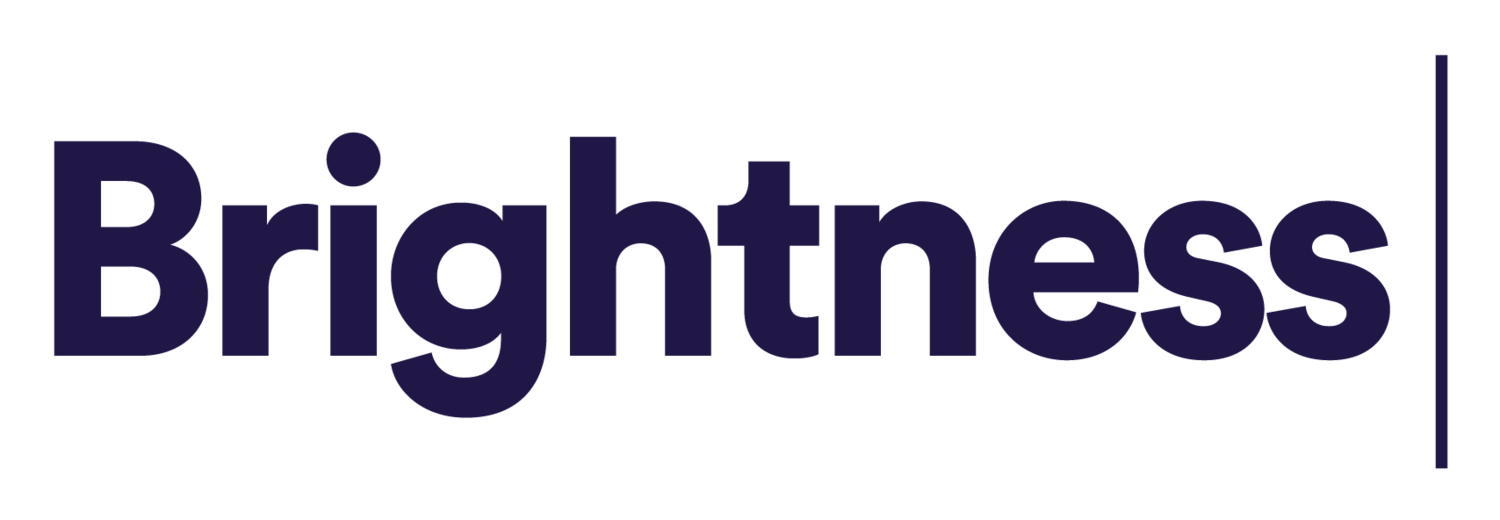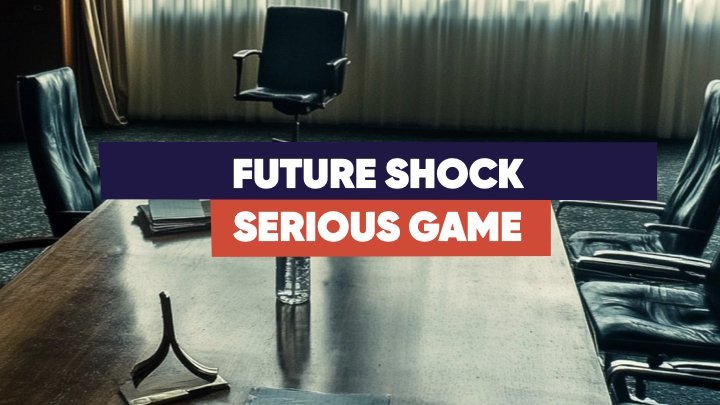FUTURE SHOCK - Le serious game pour piloter l'incertitude
Préparez vos équipes à des chocs géopolitiques, économiques ou technologiques inattendus. FUTURE SHOCK simule des scénarios réalistes et vous entraîne à décider vite, en équipe, avec une vision claire et structurée.
Pourquoi FUTURE SHOCK ?
Dans un monde instable, la question n'est plus « si » mais « quand » surviendront les prochains chocs. Par le jeu, vos équipes expérimentent des situations de crise et élaborent des réponses stratégiques, présentées ensuite au « client » le plus exigeant : votre direction.
Décider en contexte d'incertitude et sous contrainte de temps
Cartographier risques et opportunités, imaginer des stratégies robustes
Aligner les équipes et muscler la qualité des débats
“FUTURE-SHOCK” est un programme adapté aux problématiques réelles de votre entreprise.
Formats
15
Participants max (reco.)
4-7h
Durée selon le format
fr/en
Langues disponibles
Atelier stratégique – 1 journée
Immersion approfondie, focalisée sur vos enjeux.
Jusqu’à 5 scénarios personnalisés
Parcours complet : briefing → jeu → pitchs → debrief
Production d’actions concrètes et mesurables
Atelier d’acculturation – 4h
Découverte express du management de l'incertitude par le jeu.
2 scénarios mis en jeu
Travail en équipes, restitution en mode pitch
Idéal séminaire & kick‑off
Compétences développées
Priorisation
Allouer ressources & arbitrer vite.
Analyse multi‑risques
Identifier risques/leviers & imaginer options.
Créativité
Générer des idées actionnables.
Prise de parole
Pitchs clairs, convaincants, orientés impact.
Intelligence collective
Coordination et partage d’information.
Vision système
Relier court terme et big‑picture.
Modalités pédagogiques
Le programme alternant, présentations de scénario, identification de tendances, sessions de jeu, activités d’interactions, pitchs et synthèses (à chaud et à froid).
PRESENTATION DE SCENARII & DE TENDANCES
Découvrir le scénario et les grandes tendances permettant d’entrer dans le jeu.
SESSIONS DE JEU
Constitution des équipes et sessions de jeu. Chaque round correspond à l'émergence d’un choc et l’identification de réponses à ce choc.
PITCH
Chaque équipe présente sa stratégie sous la forme d’un pitch de synthèse permettant de répondre au possible choc à venir.
DEBRIEF
Le programme donne l’occasion de deux synthèses à chaud et à froid, permettant de revenir sur les éléments de fond et de forme de l’exercice. Les équipes repartent avec des plans d’action plausibles face au choc étudié
Mode d’animation
Un programme en présentiel
Le programme délivré en présentiel.
Les réunions préparatoires et de synthèse peuvent se dérouler en visioconférence sur Teams, Zoom ou Google Meet
1 - Brief & tendances
Cadre analytique, signaux faibles et hypothèses structurantes pour chaque scénario.
2 - Jeu & chocs
Équipes en mode think‑tank ; évènements inattendus viennent bousculer vos plans.
3 - Pitch & debrief
Restitution au « client », feedback croisé et extraction des enseignements clés.
Cibles, problématique et objectifs pédagogiques
Audience type
Directions générales
Directions marketing.
Directions des ressources humaines.
Managers
Équipe stratégiques
Directions de l’innovation
Problématique
Comment gérer l’incertitude ?
Comment favoriser une culture de l’innovation ?
Comment identifier les signaux faibles et les tendances qui permettent de concevoir des réponses aux ruptures futures ?
Comment se préparer aux chocs à venir ?
Intervenants
Guy Philippe Goldstein
Guy-Philippe Goldstein est chercheur en géopolitique et cyber, consultant et romancier. Il est chargé de cours à l'Ecole de Guerre Economique (Paris) et contribue à la revue académique de l'INSS (Institute for National Security Studies) à Tel-Aviv. Il est également conseiller de PriceWaterhouseCoopers sur des questions telles que les études prospectives sur les risques globaux et géopolitiques, ou sur l'évaluation des entreprises et les cyber-risques. Il mène également des travaux prospectifs sur l'avenir de la guerre pour le ministère français de la défense et pour des entreprises nationales. Il est fréquemment invité comme orateur principal lors de conférences de groupes de réflexion ou de réunions d'entreprises privées, y compris plusieurs grandes entreprises d'assurance, de banques, de services publics ou de marques de luxe.
Michel Levy Provençal
Après avoir créé TEDxParis, la première conférence TEDx en Europe en 2009, Michel Levy Provençal consacre aujourd’hui son temps au développement de l’agence Brightness. Il intervient auprès d’entreprises et d’acteurs publics en délivrant des conférences et en accompagnant leurs dirigeants. Certifié par l’université d’Oxford en Scénario Planning, il enseigne à SciencesPo et a publié trois ouvrages méthodologiques et de prospective depuis 2017. Il écrit également des chroniques régulières dans Les Echos. Il est reconnu comme une des voix qui compte dans l’écosystème d’innovation hexagonale.








